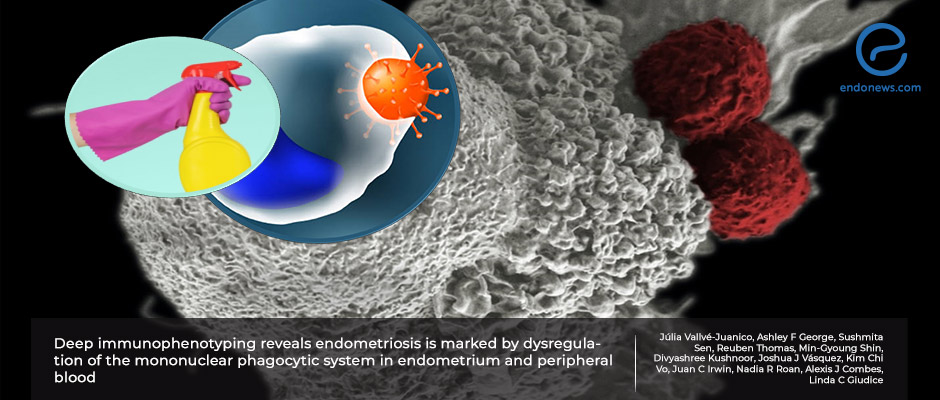The clearance system is defective for women who develop endometriosis
Jul 4, 2022
The immune response holds a huge responsibility for endometriosis development.
Key Points
Highlights:
- In endometriosis, a higher inflammatory phenotype and a decreased phagocytic capacity of endometrial macrophages reflect defective clearance of endometrial cells shed during menses.
Importance:
- The study clarifies a missing brick of endometriosis pathophysiology by defining the immune response alterations.
What's done here:
- In a case-control study, eutopic endometrial tissue and blood samples for proteins related to immune cell types and immune response between endometriotic and healthy women were analyzed.
- A total of 34 endometrial tissues (Control = 14, Endometriosis = 20) and a total of 60 blood samples (Control =9, Endometriosis = 17) from the proliferative and secretory phases were examined.
- The stage of the disease, menstrual cycle timing, and demographic was noted.
- Patients with any immune diseases, cancer or HIV, HBV, and HCV positivity, or women who are under hormone therapy were excluded.
- The data were also sub-analyzed according to the cycle phase and the severity of the disease.
Key Results:
- There were statistically significant differences between specific immune-cell populations in cases and controls:
- Macrophages and neutrophils were abundant; NK cells, B cells, and γδ T-cells decreased in the proliferative phase in cases versus controls.
- Immature dendritic cells were more abundant than mature ones.
- There was a difference in the specific endometrial monocyte and macrophage subsets displaying distinct dynamics by cycle phase.
- In endometriosis, monocytes, CD91(+) macrophages were increased, and CD44(+) classical monocytes were decreased.
- CD91(+) macrophages and immature dendritic cell phenotypes suggested reduced phagocytic capacity and inflammatory bias.
- Furthermore, both scenarios are more abundant in mild versus severe diseases.
Limitations:
- The sample size was small to distinguish differences between menstrual cycle phases.
- It is a well-designed study with lots of novel applications.
Lay Summary
Endometriosis is both a hormonal and an immune disease thus overcoming the immune response by improving the underlying mechanism would help fight the disease.
In the study conducted by Dr.Guidice group at the University of California San Francisco, San Francisco, CA, USA, the researchers analyzed the immune response distribution on endometrium and blood of healthy women and women with endometriosis. A total of 34 endometrial tissues (Control = 14, Endometriosis = 20) and a total of 60 blood samples (Control =9, Endometriosis = 17) from the proliferative and secretory phases were analyzed. The stage of the disease, menstrual cycle timing, and demographic data have been noted. Patients with any immune diseases, cancer or HIV, HBV, and HCV positivity, or women who are under hormone therapy have been excluded. This article was recently published in the journal named BMC Medicine.
The authors analyzed the tissue and blood samples for expressed proteins related to immune response and immune cell types that differ between endometriotic and healthy women. The data were analyzed according to the cycle phase and severity of the disease. The novel analytic methods used in the study have allowed labeling and analyzing cells at the single-cell level with more antibodies than traditional flow cytometry.
Endometrial CD91+ macrophages and the immature nature of dendritic cells of endometriotic patients were summarized as increased inflammation and reduced phagocytosis in endometriosis. While the samples were not enough to talk about any change related to cycle phases the result defined a reasonable immune response difference between healthy and endometriotic women.
Research Source: https://pubmed.ncbi.nlm.nih.gov/35421980/
immun response endometriosis

